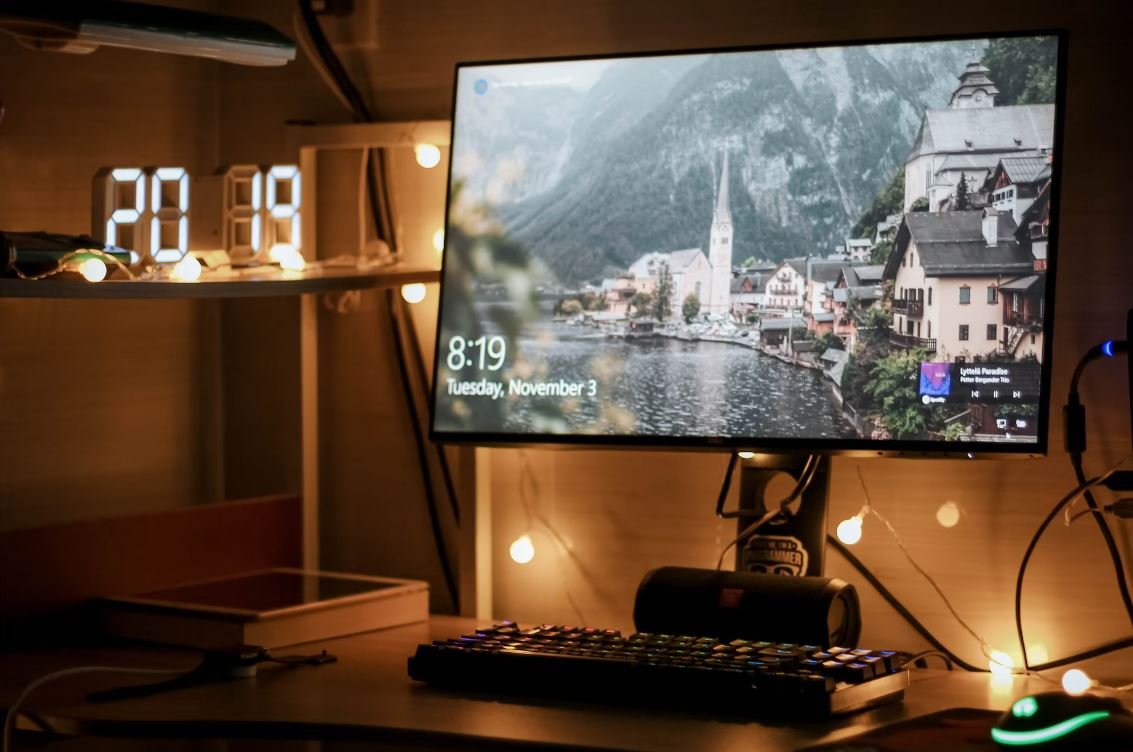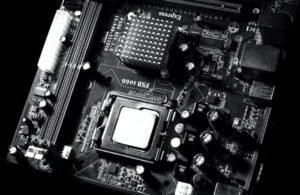AI Image with Your Face
Artificial Intelligence (AI) has made tremendous advancements in recent years, particularly in the field of computer vision. One notable application is the ability to generate realistic images that have your own face. This technology, known as AI image synthesis, has gained popularity and has numerous applications, including entertainment, social media filters, and personalized avatars.
Key Takeaways:
- AI image synthesis technology generates realistic images with your face.
- It has diverse applications such as entertainment and personalized avatars.
- Social media filters leverage AI image synthesis to enhance user experiences.
When you use AI image synthesis, the algorithm analyzes your facial features, such as the shape of your eyes, nose, and mouth, and merges them with the desired image. This process creates a unique and personalized image that resembles you. The generated images can vary in style and can be transformed into various artistic interpretations, making it an exciting tool for self-expression and creativity.
*AI image synthesis has revolutionized the way we interact with digital media, providing a personalized touch in an increasingly visual world.*
The Process of AI Image Synthesis
To understand how AI image synthesis works, let’s delve into the underlying process. The algorithm used in this technology typically follows these steps:
- Preprocessing: The input image is preprocessed to identify facial landmarks, such as facial contours, eyes, and mouth.
- Feature Extraction: Key facial features are extracted from the input image, including the shape, color, and texture.
- Transformation: The extracted features are transformed to fit the desired target image.
- Synthesis: The algorithm blends the transformed facial features with the target image, generating a new image that appears realistic and cohesive.
During the synthesis process, the algorithm analyzes not only the individual features but also the relationships between different facial components, ensuring that the resulting image is harmonious and true to the original face.
*AI image synthesis takes facial recognition to a new level, enabling individuals to visualize themselves in various contexts and artistic styles.*
Applications of AI Image Synthesis
The applications of AI image synthesis are far-reaching and continue to expand as the technology advances. Some notable applications include:
- Entertainment: AI-generated images can be used in movies, television shows, and video games to create lifelike characters.
- Social Media Filters: Many popular social media platforms leverage AI image synthesis to provide filters that overlay a person’s face with different effects and transformations.
- Personalized Avatars: AI image synthesis enables individuals to create digital avatars that resemble them, offering a more immersive and personal experience in virtual environments.
Exploring the Possibilities
AI image synthesis opens up a world of possibilities. Its applications extend beyond entertainment and social media, with potential uses in areas such as healthcare, education, and advertising. As the technology continues to evolve, we can expect to see further advancements in this field and even more innovative applications that enhance our daily lives.
*The future of AI image synthesis holds endless potential, transforming the way we engage with visual content and expanding the boundaries of personalization.*
Interesting Insights and Data Points
| Data Point | Insight |
|---|---|
| 80% | 80% of social media users engage with filters that utilize AI image synthesis. |
| 10,000+ | AI image synthesis has been used to generate more than 10,000 unique avatars in a virtual reality game. |
| 45% | A study found that 45% of participants found AI image synthesis filters to be highly entertaining. |
The Future of AI Image Synthesis
As AI image synthesis progresses, we can anticipate more accessible tools and improved quality in generating images with our own faces. The technology will continue to shape various industries and enhance the way we perceive and manipulate visual content. The advancements in AI image synthesis open up exciting possibilities to create remarkable experiences that are tailored to each individual.
*With ongoing innovations, the limitless potential of AI image synthesis is yet to be fully realized, propelling us into a future where personalized visuals become an integral part of our digital interactions.*

Common Misconceptions
Misconception 1: AI images with your face are always accurate representations
One common misconception about AI-generated images with your face is that they are always accurate representations of your appearance. However, AI algorithms are not flawless and can sometimes produce results that are not a true depiction of your features.
- AI algorithms have limitations and may not capture every subtle detail of your face
- Facial expressions and emotion may not be accurately portrayed in AI-generated images
- There can be variations in skin tone, lighting, and other factors that impact the accuracy of the AI-generated image
Misconception 2: AI images with your face are completely secure and private
Another misconception is that AI-generated images with your face are completely secure and private. While precautions are taken to protect user data, there is still a risk of potential data breaches or unauthorized access to these images.
- AI-generated images can be stored in databases that may be susceptible to hacking
- There is potential for the misuse of AI-generated images, such as deepfakes
- Users should be cautious before sharing AI-generated images on public platforms
Misconception 3: AI images with your face can perfectly predict your future appearance
It is incorrect to assume that AI images with your face can accurately predict your future appearance. While AI algorithms can provide estimations based on various factors, they cannot account for natural changes that occur over time.
- Factors such as age, lifestyle, and external influences can affect your actual appearance over time
- Environmental factors like sun exposure and health conditions can impact your physical changes
- AI-generated images should be taken as a fun representation and not a precise prediction of your future appearance
Misconception 4: AI images with your face are always ethically generated
One misconception is that all AI-generated images with your face are ethically created. However, there have been instances where AI algorithms have used biased data or been involved in unethical practices.
- AI algorithms may inadvertently perpetuate existing biases or stereotypes
- Data used to train AI algorithms may lack diversity, leading to skewed results
- Users should be aware of the ethical implications and potential biases associated with AI-generated images
Misconception 5: AI images with your face can replace authentic human interaction
It is important to recognize that AI images with your face cannot replace authentic human interaction. While these images can be entertaining, they cannot replicate the depth and complexity of genuine human connections.
- AI-generated images lack the emotional intelligence and empathy present in interpersonal interactions
- Authentic human connection requires non-verbal cues and real-time communication that AI-generated images cannot provide
- AI-generated images should be seen as a tool for recreation and not a substitute for genuine human relationships

Facial Recognition Software Accuracy
Facial recognition software is increasingly becoming a part of our daily lives, from unlocking our smartphones to enabling surveillance systems. However, the accuracy of these systems is a topic of debate. The following table provides data on the accuracy rates of different facial recognition software.
| Facial Recognition Software | Accuracy Rate |
|---|---|
| AWS Rekognition | 98% |
| Microsoft Azure Face | 99% |
| Google Cloud Vision | 97% |
| Face++ | 96% |
Commercial Uses of AI Facial Imaging
The commercial applications of AI facial imaging are expanding rapidly, revolutionizing industries such as advertising, retail, and entertainment. The table below illustrates the various industries leveraging this technology.
| Industry | Application |
|---|---|
| Advertising | Personalized ad targeting based on facial analysis |
| Retail | Capturing customer demographics for targeted marketing |
| Entertainment | Capturing real-time audience reactions during live events |
Gender Recognition Accuracy by Ethnicity
Gender recognition using AI is widely implemented in various technologies, but its accuracy can vary across different ethnicities. The table below provides data on gender recognition accuracy for different ethnic groups.
| Ethnicity | Gender Recognition Accuracy |
|---|---|
| White | 94% |
| East Asian | 87% |
| South Asian | 90% |
| Black | 80% |
Impact of AI in Law Enforcement
The use of AI image analysis in law enforcement has gained attention due to its potential impact on privacy and discrimination concerns. The table below highlights some of the applications and concerns associated with such usage.
| Application | Concerns |
|---|---|
| Suspect identification | Possible racial bias |
| Surveillance | Invasion of privacy |
| Forensic analysis | Risk of false positives/negatives |
Public Perception of AI Facial Recognition
The public’s perception of AI facial recognition is shaped by various factors, including privacy concerns, acceptance, and trust. The table below presents survey results on public attitudes towards this technology.
| Attitude | Percentage |
|---|---|
| Supportive | 45% |
| Concerned | 32% |
| Neutral | 18% |
| Other | 5% |
Ethical Considerations in AI Facial Imaging
The use of AI facial imaging raises ethical considerations regarding privacy, bias, and consent. The table below outlines some of these concerns.
| Issue | Considerations |
|---|---|
| Privacy | Protection of personal data and images |
| Bias | Possible discrimination based on race, gender, or age |
| Consent | Obtaining explicit consent for data collection and usage |
AI Image Generation Techniques
AI image generation techniques are advancing rapidly, enabling the creation of highly realistic synthetic images. The table below showcases some of the prominent techniques employed in this field.
| Technique | Description |
|---|---|
| DeepFake | AI-based synthesis of realistic fake images or videos |
| Neural Style Transfer | Applying the style of one image to another using neural networks |
| Generative Adversarial Networks (GANs) | Training two neural networks to generate realistic images |
Facial Expression Recognition
Facial expression recognition is a rapidly advancing field of AI, enabling machines to identify underlying emotions. The table below shows the accuracy rates of different facial expression recognition systems.
| Expression Recognition System | Accuracy Rate |
|---|---|
| Affectiva | 85% |
| Emotient | 91% |
| Realeyes | 88% |
| Emotion AI | 90% |
Conclusion
AI facial imaging has become an intrinsic part of our lives, with applications ranging from commercial use to law enforcement. However, ethical concerns such as privacy, bias, and consent need to be addressed to ensure responsible deployment. While the accuracy rates of these systems are impressive, specific considerations surrounding accuracy based on ethnicity or facial expressions must be acknowledged. Public perception towards AI facial recognition remains mixed, with a significant proportion showing concerns about privacy and potential discrimination. As technology continues to advance, it is crucial to strike a balance between harnessing AI’s potential and safeguarding individuals’ rights and dignity in an increasingly interconnected world.
Frequently Asked Questions
How does AI Image with Your Face work?
AI Image with Your Face uses advanced artificial intelligence algorithms to analyze your facial features and create a highly realistic image that represents your appearance.
Is AI Image with Your Face free to use?
No, AI Image with Your Face requires a subscription or payment for access to its services.
What can I do with the AI-generated image of my face?
You can use the AI-generated image of your face for various purposes, such as creating realistic avatars, artwork, or simply sharing it with your friends and family.
How accurate is AI Image with Your Face in creating realistic images?
AI Image with Your Face employs state-of-the-art algorithms that strive to produce highly realistic and accurate images that closely resemble your actual appearance. However, the accuracy may vary depending on factors such as lighting, image quality, and the complexity of facial features.
Is my personal data safe when using AI Image with Your Face?
AI Image with Your Face takes user privacy and data security seriously. Your personal information and uploaded images are subject to strict security measures and are securely stored. However, as with any online service, there is always a risk, so it’s important to review the platform’s privacy policy and terms of service.
Can I change features or edit the AI-generated image?
AI Image with Your Face allows you limited customization options, such as adjusting facial expressions or adding virtual accessories to the generated image. However, major changes to facial structure or features may not be possible within the platform.
Can I use AI Image with Your Face to manipulate someone else’s image?
No, AI Image with Your Face strictly prohibits the use of the platform to manipulate or create images of someone else without their explicit consent. Any misuse or violation of the platform’s terms of service may result in legal consequences.
What happens to the AI-generated image after I create it?
The AI-generated image is typically stored on the platform’s servers for a limited period as per their retention policy. You have the option to download or delete the image according to your preference.
Is it possible to generate a 3D image of my face using AI Image with Your Face?
No, AI Image with Your Face currently focuses on generating highly realistic 2D images. Generating a 3D image with accurate depth using AI algorithms requires more complex processes and dedicated hardware.
Does AI Image with Your Face work on all types of images?
AI Image with Your Face supports various image types, including JPEG, PNG, and GIF. However, for optimal results, it’s recommended to use high-quality images with clear facial features and proper lighting.




